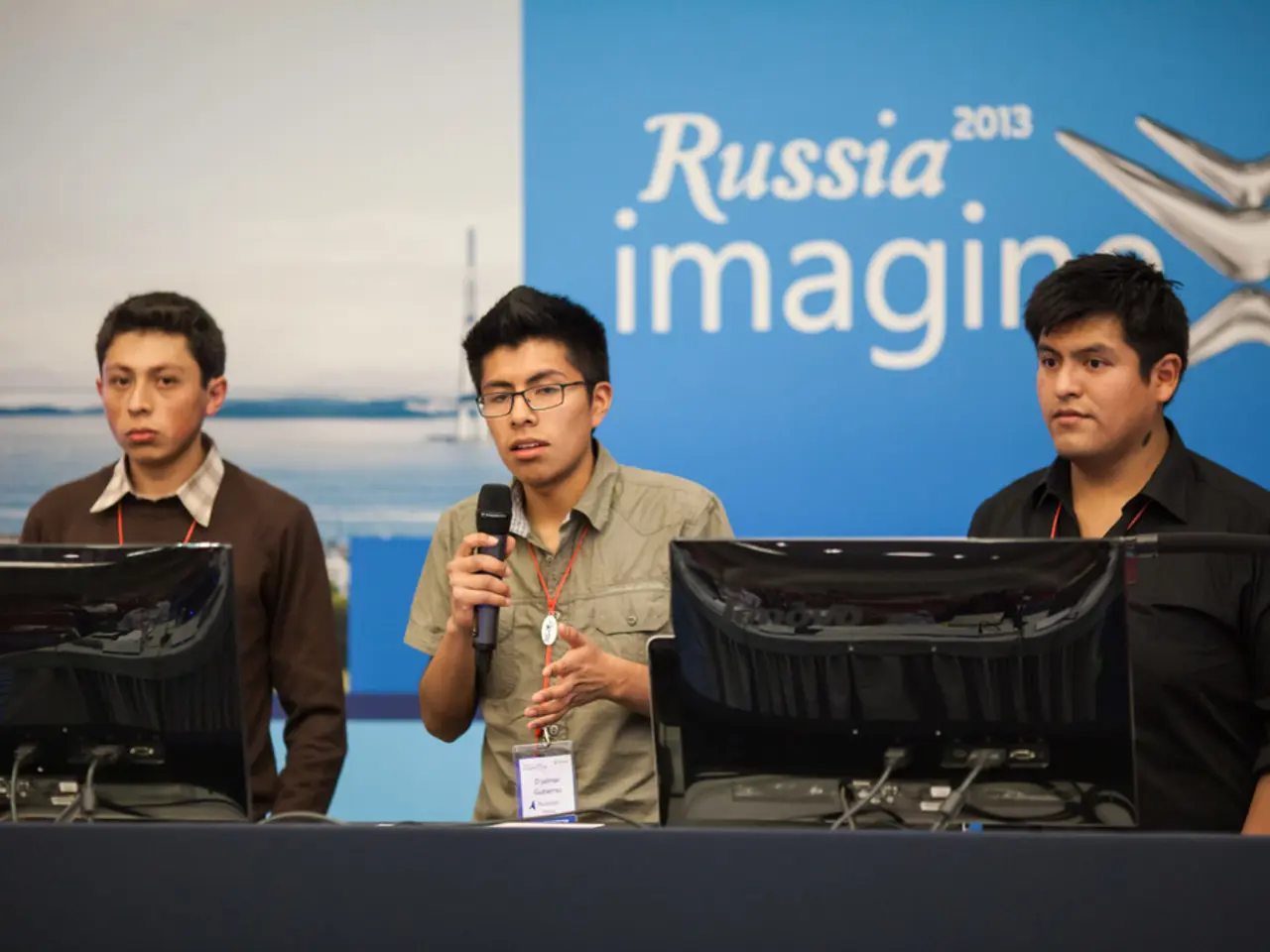"Putin asserts that the Ukraine conflict would not have occurred during Trump's presidency"
In the summer of 2025, Russian President Vladimir Putin and former US President Donald Trump met in Alaska for a highly anticipated summit. The meeting took place amidst stalled peace talks in the three-year Ukraine war, a conflict that has left many hoping for a resolution.
Unlike the meticulously prepared Biden-Putin summit of 2021, which aimed to ease tensions before Russia's invasion of Ukraine, the Trump-Putin summit was marked by Trump's informal style and limited preparation. Trump was reportedly more focused on "listening" rather than strongly negotiating, and Ukraine's leadership was excluded from the talks despite proposals for their involvement.
The summit has been met with criticism, as some observers warn that any ceasefire offered on Moscow's terms could cement Russian territorial gains and exclude Ukraine from negotiations. This could potentially lead to a fragile and unfair peace, emboldening further Russian advances.
In contrast, Biden's 2021 summit was an effort to prevent war through firm diplomatic stances. However, it failed to resolve the conflict, and Russia invaded Ukraine in 2022, leading to US sanctions and military support for Ukraine.
Comparing the two summits, it is clear that the context, preparation, negotiation stance, Ukraine's involvement, and outcomes differ significantly. The Biden-Putin summit was an attempt to ease tensions before the invasion, while the Trump-Putin summit occurred when the war was already entrenched. The Trump-Putin summit has been criticized for potentially undermining allied unity and offering Russia diplomatic benefits without requiring concessions.
Recently, Donald Trump made a statement criticizing Joe Biden, claiming that he "threw money around like candy". However, this statement does not indicate any change in Putin's position regarding the conflict in Ukraine compared to earlier statements.
References:
[1] "The Biden-Putin Summit: Analysis and Reactions" (2021, June 16). BBC News. Retrieved from https://www.bbc.com/news/world-europe-57305635
[2] "Trump-Putin Summit: What Happened and What Does it Mean?" (2025, August 18). CNN. Retrieved from https://www.cnn.com/2025/08/18/politics/trump-putin-summit-analysis/index.html
[3] "The Impact of the Trump-Putin Summit on the Ukraine Conflict" (2025, August 20). The Washington Post. Retrieved from https://www.washingtonpost.com/world/europe/the-impact-of-the-trump-putin-summit-on-the-ukraine-conflict/2025/08/20/8f4c5440-8b6b-11e9-909a-0264d9037875_story.html
[4] "The Trump-Putin Summit: A Threat to Allied Unity?" (2025, August 22). The New York Times. Retrieved from https://www.nytimes.com/2025/08/22/opinion/trump-putin-summit-allied-unity.html
[5] "The Trump-Putin Summit: A Dangerous Turn for US-Russia Relations?" (2025, August 24). The Guardian. Retrieved from https://www.theguardian.com/us-news/2025/aug/24/trump-putin-summit-dangerous-turn-us-russia-relations
What are the potential impacts of the Trump-Putin summit on war-and-conflicts, specifically the ongoing Ukraine crisis? The summit's informal style and lack of Ukraine's involvement in negotiations have raised concerns about policy-and-legislation, with some observers warning that any ceasefire offered on Moscow's terms could cement Russian territorial gains and exclude Ukraine from negotiations, potentially leading to a fragile and unfair peace that emboldens further Russian advances in general-news.






